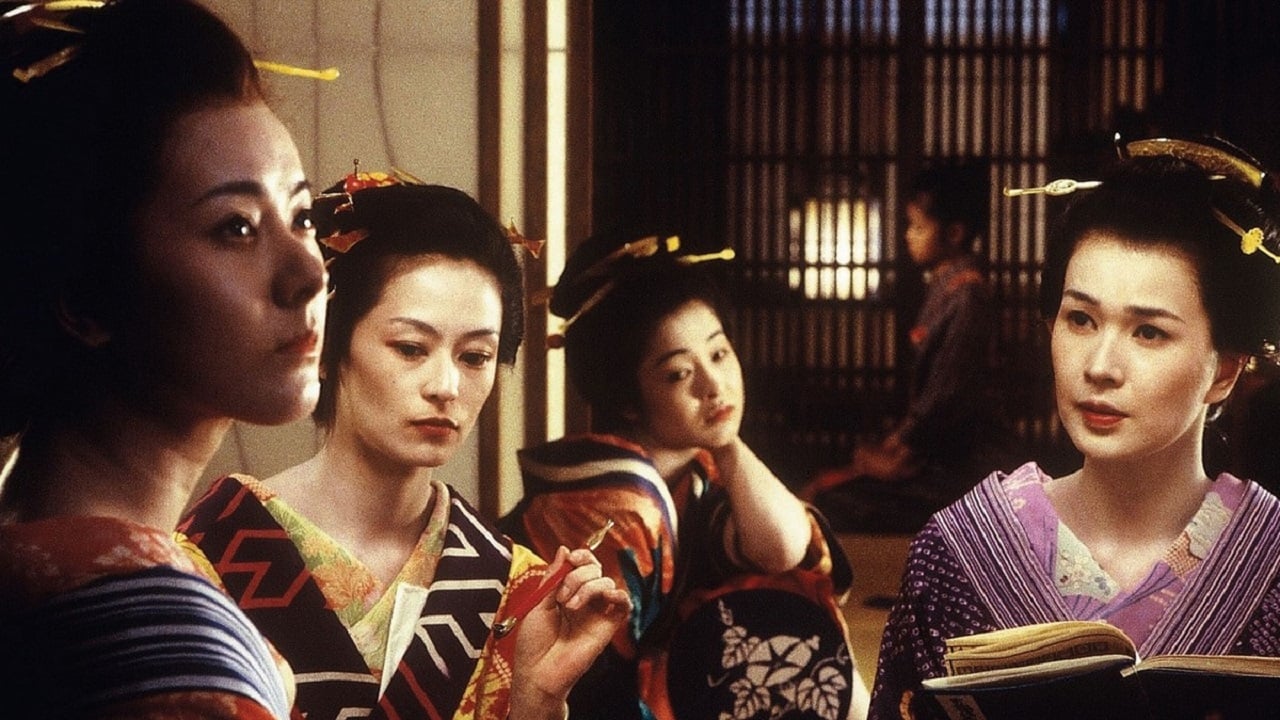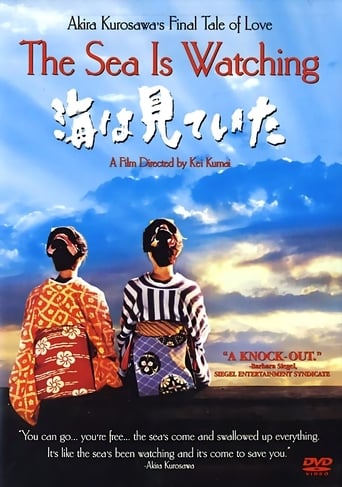

Kurosawa weaves a tale that has a cast of characters as diverse as any Shakespearean drama, and the acting is true to the story, with each star playing their role as a part of the larger tale. It is touching, funny and intriguing in all parts. The character development is near perfect, the cinematography is vivid and engaging, and the story draws you in.I would like to say that the "Samurai freaks" and those obsessed with late 18th and 19th century dynastic tales of Japan may snub this film as not Kurosawa's best work. Perhaps not his best, but even at his worst, Kurosawa is better than many of the best. This story is so based in elevating the mundane lives of ordinary people in a time of great change, that it is timeless, despite being set in the not-so-distant past.I would heartily recommend this to any movie buff, and especially to those who are likely to continue on to read the novel on which the film is based.
... View More'Umi wa miteita' ('The Sea is Watching') was Akira Kurasawa's swansong to film: his adaptation of his favored novelist Shugoro Yamamoto's story into a screenplay he intended to film was his final mark he left on a brilliant career. Director Kei Kumai pays homage to both Kurosawa and Yamamoto in presenting this visually stunning transformation of word to image.Set in 19th century Japan, the story explores the lives of the women of a Geisha house whose sole purpose in life is to earn money by pleasuring men. The house is run by an older couple who are genteel and the geishas are an enchanting group of women who know their trade and take pride in their careers. Each has a reason for turning to the life of geisha. Oshin (Nagiko Tono) supports her family who live in a neighboring village, Kikuno (Misa Shimizu) has customers both good and evil whom she manages to sustain with her stories of her higher caste. Oshin befriends an endangered samurai, falls in love with the gentle fellow, only to find that he must not marry out of his caste and leaves his pleasures with Oshin to marry his promised betrothed. Oshin's heart bruises easily but is always supported emotionally and physically/monetarily by Kikuno and the other geishas.A handsome samurai Ryosuke (Masatoshi Nagase) enters Oshin's life and develops the first trusted and devoted relationship with her. Kikuno is beset by problems, deciding whether to accept the humble love of an old man who wishes to marry her, and coping with a rich but abusive customer. All the while the sea is watching and as a typhoon destroys the geisha house and street, Oshin and Kikuno sit atop the roof waiting for the promised rescue by Ryosuke. The manner in which the story ends is one of sacrifice, love, and devotion. The sea is watching and will find protection for true love.The photography by Kazuo Okuhara is breathtakingly beautiful: night scenes with glowing lanterns and colorful geisha interiors are matched with recurring glimpses of the sea both calm and turbulent. The acting is a bit strained for Edo art, but the characters are well created and keep the story credible. The one distraction which is definitely NOT something Kurosawa would have condoned is the tacky Western music score that sounds like cheap soap opera filler except for the isolated moments when real Japanese music on authentic instruments graces the track. But in the end there is enough of Kurosawa's influence to imbue this film with his brand of dreamlike wonder that will always maintain his importance on world cinema. Grady Harp
... View MoreThe Sea is Watching was an interesting film experience. First of all, the overall feel was intense, internalized, claustrophobic, and small. Each frame seemed to be a photograph of something inside, something very focused and not part of a bigger picture. It was obvious what we were to look at in each frame. The physicality of the set itself contributed to that feeling of smallness and intensity. The lights along the middle of the road cut the road in half, and the tiny gate to the tiny settlement followed by the tiny and few cubbyholes that served as the establishments that made up what seemed to be the entire town. Even the view of the ocean was framed by a tiny landing on which one can count the number of longer grass swaying in the wind. No panoramic views. In fact, it reminded me of the Montmarte sequence of Moulin Rouge where the camera sweepingly focuses in to the windmill creating again a feeling of a small area where everything is happening.While the acting was passable considering I really could not discern how the lines were truly delivered, I felt that the actions were overly melodramatic and nonsensical. Why Kikuno would continue carrying on the way she did when Fusanosuke announced his impending marriage really didn't seem true people hadn't really changed that much, and the character Kikuno was so strong and resilient that even if they were busy taking on O-shin's business for naught, the reaction seemed out of character and unnecessary and distracting. Another example of odd acting was when the drunk boyfriend of Kikuno showed up and Ryosuke decided to intervene and was pushed down the stairs, the way in which he got up and menacingly came up the stairs and the ensuing fight outside among the reeds was simply unsatisfying. It wasn't that I like fight scenes au contraire but it seemed a little stilted and again, overly dramatic.Otherwise, while not a beautiful movie to watch, it provided an interesting glimpse into the darker side of prostitution (as opposed to the geisha). Unfortunately, perhaps it fed into our expectations of wanton women (the "honey I'll give you a deal" comments supported by the over-stretched actions) and seriously caused me to doubt whether indeed 19th century prostitutes really acted in that way. But once inside the house, the inner workings became most interesting, vivid and real and provided a scenario I never anticipated or imagined in my romantic view of Japan in the 19th century.
... View MoreA tragically wonderful movie... brings us to a Japan that does not exist anymore. Despite Hollywood's technical expertise, I have yet to see a (hollywood) movie that can match the authenticity of the atmosphere in this small town by the river near the sea... Tom Cruise's The Last Samurai looked liked the last installment of the Lord of The Rings in trying to capture rural Old Japan.If you like serene but intense story lines, this is a must see film. It will be a respite from hollow flashy films much like the last 1000 blockbusters you saw. I think this is one of Kurosawa's better stories.Even if it's a movie about geishas and brothels and the complicated rules that govern life in such settings, it did not turn into a skin flick. The characters are full of depth and act with much intensity.
... View More